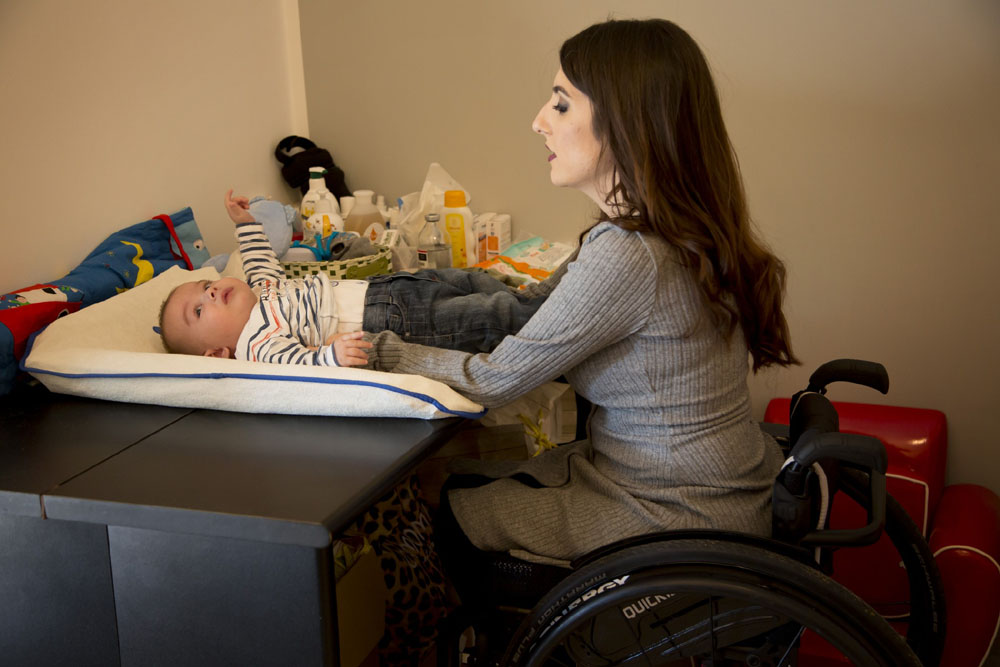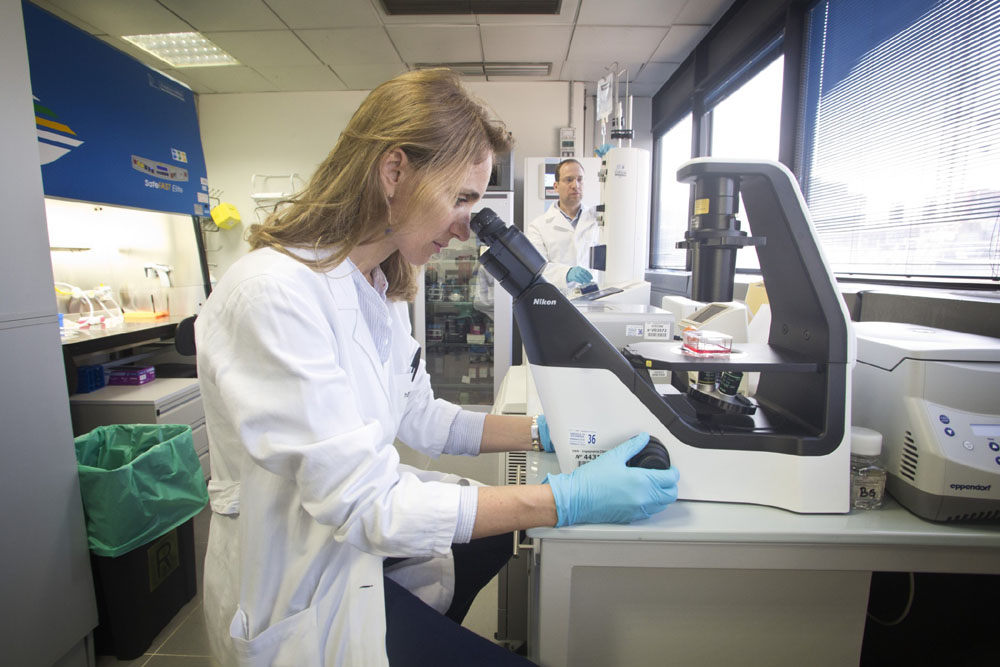A rare disease means not only a burden of pain for the individuals living with it, but also a lack of communication: there are few patients, it is more difficult for doctors to obtain and compare information. Sharing is essential: that is why “Disease registries” are important. These computerised databases contain patients’ personal details, genetic and clinical data, which can be shared with doctors and researchers working on developing a cure.
“Disease registries are valuable instruments that can be extremely helpful for epidemiological and research purposes, defining treatment standards and increasing knowledge about diseases”
Davide Pareyson, Istituto neurologico “Carlo Besta” di Milano, Telethon researcher
The Neuromuscular Disease Patient Registry
In 2009, Telethon, together with the patient associations concerned, created the “Registry of patients with neuromuscular diseases”. These disorders have always been a key area of focus: Telethon supports the project by way of substantial investments and the patient associations are also involved in its governance.

The Registry comprises databases specific to one disease or to a group of similar diseases. It can mainly help patients in two ways:
- It provides important elements for planning clinical trials and facilitates the identification of the most suitable patients to be included in Italian or international observational or interventional clinical trials
- It supports clinicians and patient associations in initiatives aimed at implementing the best diagnosis and treatment standards.
Patients register on a voluntary basis, so the Registry cannot be used to obtain information about the exact number of patients with a given disease in Italy. However, if enough patients register, the information they provide can be fairly representative of the overall natural history of the disease, i.e., the way in which the disease develops and evolves. Furthermore - in comparison to epidemiological registries of rare diseases, for example, where data are collected from healthcare facilities - patients’ clinical data are more detailed and complete: genetic and clinical data (for example, the ability to walk or move one hand) are entered by the specialist after examining the patient and so are always scientifically validated and collected in a uniform manner at national level.

The information is then uploaded to an IT platform that ensures maximum security. From here, it can be accessed by the clinicians who collected the data, as well as by researchers who submit a specific request. Such requests must be accompanied by the study’s approval by the Ethics Committee at the researcher’s institute (where relevant) and are examined by a dedicated, independent data access committee that supports the activities of the Registry. All data are shared in anonymous form: patients’ names are never disclosed nor can they be identified in any way whatsoever. The whole process is conducted in accordance with the most stringent privacy procedures because, as always, the number one priority is to safeguard and respect the individual.
The HSP (Hereditary spastic paraplegia) Registry
In 2023, Fondazione Telethon selected and financed a special project dedicated to hereditary spastic paraplegia (HSP), which will be supported with a total investment of approximately EUR 800,000 over five years.
The aim of the project is to facilitate the pathway to clinical trials of therapies for different forms of HSP by creating a pathology registry collecting data on more than 500 patients in an organised way. The decision to set up the registry had emerged from a scenario analysis of HSP research that had highlighted the definition of the natural history of the disease as the decisive step towards a cure: collecting accurate genetic and clinical data on patients is essential to achieving this goal.
For a group of diseases as complex as HSP, with a considerable variety of genetic forms, the registry will also help to improve the diagnosis and define standards of care more effectively, with a real impact on patients' quality of life.